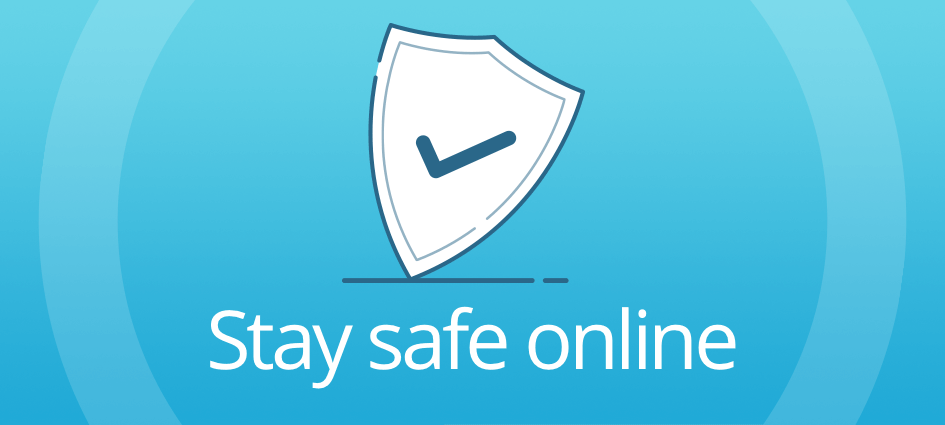With hacks, scams, malware and more, the internet can be seen as a dangerous place nowadays. The recent rise of devices, from smartphones and tablets to devices connected to the Internet, has brought us even greater risks.

Here are some tips to help you get started:
- Generate advanced passwords. We know you've heard it before, but creating strong, unique passwords for all your critical accounts really is the best way to keep your personal and financial data you safe. This is especially true in the era of widespread corporate breaches, where a single database breach can expose tens of thousands of user passwords. If you reuse your passwords, an attacker can take the leaked data from an attack and use it to log into your other accounts. Our best advice: use a password manager to help you store and create strong passwords for all your accounts.
- Enhance the security of your network. Now that your login information is secure, make sure your connections are secure. When you are at home or at work, you are probably using a router with a password that encrypts your data. However, when you are on the road, you may be tempted to use free public Wi-Fi. The problem with public Wi-Fi is that it is often not secure. This means that it is relatively easy for a hacker to access your device or information. So you should consider investing in a virtual private network (VPN). VPN is a software that creates a secure connection over the Internet so that you can connect securely from anywhere.
- Use a firewall. Even if your network is secure, you should still use a firewall. This is an electronic barrier that prevents unauthorized access to your computers and devices and is often included with integrated security software. Using a firewall ensures that all devices connected to your network are secure, including Internet of Things (IoT) devices, such as smart thermostats and webcams. This is important, as many IoT devices are not equipped with security measures, giving hackers a vulnerable access point throughout your network.
- Κλικάρετε έξυπνα. Τώρα που έχετε εφαρμόσει μέτρα έξυπνης τεχνολογίας, βεβαιωθείτε ότι δεν προκαλείτε κίνδυνο με απρόσεκτα clicks. Πολλές από τις σημερινές διαδικτυακές απειλές βασίζονται στο ηλεκτρονικό ψάρεμα (phishing) ή στην κοινωνική engineering. Αυτό συμβαίνει όταν αποκαλύπτετε προσωπικές ή ευαίσθητες πληροφορίες για δόλιους σκοπούς. Ανεπιθύμητα μηνύματα ηλεκτρονικού ταχυδρομείου, ψευδείς “δωρεάν” προσφορές, click Phishing, online quizzes, and more use these tactics to trick you into clicking on dangerous links or giving up your personal information. Always be wary of offers that sound too good to be true or ask for too much information.
- Become a selective separator. These days, there are many opportunities to share our personal information online. Just be careful what you share, especially when it comes to your identity. This can potentially be used to impersonate you or to guess your passwords and logins.
- Protect your mobile phone. Our laptops can be just as vulnerable to cyber threats as our laptops. In fact, mobile phones face new risks, such as dangerous applications and dangerous links sent via text message. Be careful when clicking, do not reply to messages from strangers and download applications only from official app stores after first reading other users' reviews. Make sure your security software is enabled on your mobile phone, as are your computers and other devices.
- Practice on Safe Surfing & Shopping. When shopping online or visiting websites for online banking or other sensitive transactions, always make sure the website address starts with "https" instead of just "http", and has a padlock icon in the URL field. This means that the site is secure and uses encryption to detect your data so that it cannot be intercepted by others. Also watch out for sites that have misspellings or bad grammar in their URLs. They could be copies of legitimate websites.
- Stay informed. Keep all your software up to date with the latest security updates. Turn on automatic updates so you don't have to think about it and make sure your security software is set to run regular scans.
- Look for the latest scams. Online threats are constantly evolving, so make sure you know what to look out for. Ransomware is currently on the rise. This happens when an attacker threatens to lock you out of all your files, except if you agree to pay a ransom. Stay informed of this and other threats by staying informed.
- Keep your safety. Always be careful about what you do on the Internet, the websites you visit and what you share. Use complete security software and make sure you back up your data on a regular basis in case something goes wrong. By taking precautions, you can save yourself from headaches later.





